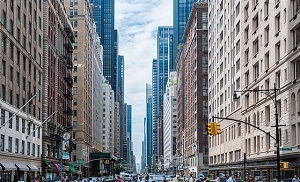Updated June 2, 2025
Here are the 3 government banks in the Philippines.
Read also below the histories of Philippine-government-owned banks
The three government banks are all universal banks.
Landbank owns one savings bank, Overseas Filipino Bank (OF Bank).
1. Land Bank of the Philippines (Landbank)
LandBank Plaza Bldg.
1598 M. H. Del Pilar cor. Dr. J. Quintos St.
Malate, Manila 1004
– No. of Offices: 686
– Founded in 1963
– Became a universal bank in 1973
Fax: 528-8568; 528-8549; 528-8580
Email: OPCEO@landbank.com
Website: http://www.landbank.com
2. Development Bank of the Philippines (DBP)
Headquarters:Gil Puyat Avenue corner Makati Avenue
Makati City
– No. of Offices: 149
– Started as Agricultural and Industrial Bank in 1939
– Renamed Development Bank of the Philippines in 1958
– Became a universal bank in 1995
Email: modejesus@dbp.ph
Website: http://www.devbankphil.com.ph
3. Al-Amanah Islamic Investment Bank of the Philippines
Headquarters:PHIDCO A. Building
Veterans Avenue, Zamboanga City
Executive Office:
4th Floor Development Bank of the Philippines
Gil Puyat Avenue corner Makati Avenue
Makati City 1200
No. of Offices: 9
– Started in 1973 as Philippine Amanah Bank
– Renamed Al-Amanah Islamic Investment Bank of the Philippines in 1990
– Only bank authorized to operate under Islamic banking concepts
– Owned and controlled by the Development Bank of the Philippines
Fax: 819-5249
Email: apamilasan@amanahbank.gov.ph
Overseas Filipino Bank, A Savings Bank of LandBank (OFBank)
(formerly Philippine Postal Savings Bank)Main Office:
Postbank Center, Liwasang Bonifacio, 1000 Manila
– Phone: 527-0040 / 527-3377
– Trunkline: 527-0053
– Number of offices: 31
– wholly-owned thrift bank subsidiary of LandBank
– was created in September 2017 when Pres. Rodrigo Duterte issued Executive Order No. 44 approving the acquisition of the Philippine Postal Savings Bank by Landbank and conversion into Overseas Filipino Bank.
– was ceremonially launched by Pres. Duterte on January 18, 2018
What about United Coconut Planters Bank (UCPB)?
United Coconut Planters Bank (UCPB)
– became a universal bank in 1981
UCPB Savings Bank
Did the government previously own UCPB?
Yes.
In July 2020, the Department of Finance announced that the government increased its ownership of UCPB to 97%. It did this by converting into special preferred shares the 12-billion-peso loan that the PDIC granted to UCPB in 2003, which was later converted into capital notes in 2009.
Prior to this announcement, the government owned 73.9%% of UCPB. After years of court battles regarding UCPB ownership, the Supreme Court ruled with finality in 2013 that the Philippine government owns 72.2% of UCPB.
According to UCPB’s 2018 annual report, it became a Government-Owned and Controlled Corporation (GOCC) in March 2018. It’s also a state depository bank.
Initially, the government did not plan to operate UCPB as a government bank, despite the huge amounts of money it has poured into it over the years to save it. It has been working with the Department of Finance on its privatization. But in August 2019, Finance Secretary Carlos Dominguez III announced his plan of exploring ways to recoup the billions of pesos that the government has spent maintaining UCPB over the years. And it most probably not through privatization.
UCPB was originally First United Bank (FUB). It was renamed United Coconut Planters Bank (UCPB) in 1975 after 72.2% of it was purchased by a government agency, the Philippine Coconut Authority (PCA), using coconut levy funds. These funds were taxes collected from coconut farmers from 1972 to 1982.
Isn’t Union Bank one of the government banks in the Philippines?
No. But the government-owned corporation SSS owns 13.99% of Union Bank.
What is Union Bank’s relationship with the SSS?
SSS is one of the 3 biggest shareholders of Union Bank. SSS, a government owned and controlled corporation (GOCC), owns 13.99% of Union Bank, as of June 2018.
Is Philippine National Bank (PNB) a Government Bank?
The Philippine National Bank (PNB) was created as a government bank in 1916, but it started getting privatized in 1989 when its stocks were listed in the stock exchange.
In 1996, PNB became a private bank when the government’s ownership was reduced to 46%.
In 1999, a group led by Lucio Tan acquired 35% of the bank and increased its ownership to 69.32% in 2000. It further increased its ownership to 77.43% in 2005.
In 2007, the government sold all its remaining shares in PNB to the public.
TOP BANKS, all types ranked together
TOP COMMERCIAL/UNIVERSAL BANKS

Post a Comment